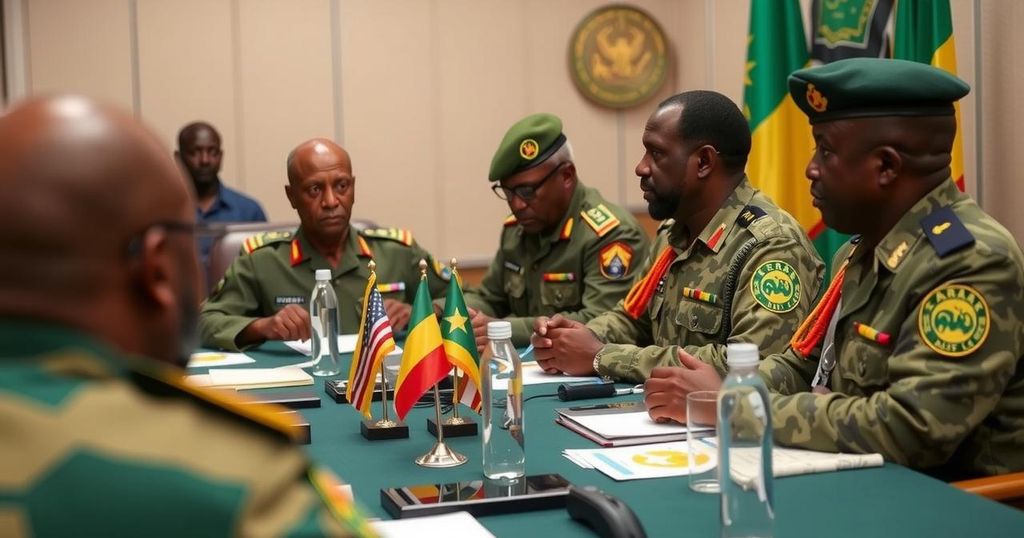Ethiopia’s Defence Minister Aisha Mohammed Mussa visited Somalia, marking the first bilateral visit since relations deteriorated over an Ethiopian naval base plan in Somaliland. The trip signals potential reconciliation after months of tension, with both nations agreeing to collaborate on resolving their disputes. Ethiopia maintains a significant military presence in Somalia to combat Al-Shabaab, amid concerns about regional instability and security.
On Thursday, Ethiopia’s Defence Minister Aisha Mohammed Mussa made a significant visit to Somalia, marking the first bilateral engagement since tensions escalated a year prior over Ethiopia’s proposal to establish a naval base in the breakaway Somaliland region. This trip, confirmed by Somalia’s State Minister for Foreign Affairs, Ali Omar, is perceived as a potential step toward improving strained relations, although specific discussions during the visit were not outlined. Ethiopia has approximately 10,000 troops stationed in Somalia as part of an African Union mission, primarily aimed at combating the militant group Al-Shabaab. However, Somalia has voiced intentions to withdraw these troops if Ethiopia does not renounce its contentious agreement with Somaliland, which aims to lease coastal land for the naval base in exchange for acknowledging Somaliland’s independence.
For decades, Somaliland has operated with autonomy since declaring independence in 1991, yet its status is unrecognized internationally. Somalia, asserting that Somaliland is an integral part of its territory, condemned the Ethiopian-Somaliland agreement as an aggressive action. Following months of heightened tensions and unsuccessful diplomatic efforts, Somalia and Ethiopia reached an accord on December 11 to collaborate on resolving their issues, initiating technical negotiations by the end of February. There are concerns that the withdrawal of Ethiopian troops could undermine efforts against Al-Shabaab, which has been in a prolonged insurgency since 2007. The overarching geopolitical context also raises alarms about potential instability in the Horn of Africa, as Somalia seeks closer ties with Ethiopia’s traditional adversaries, namely Egypt and Eritrea.
The relationship between Ethiopia and Somalia has historically been complex and often contentious, particularly in light of the ongoing struggles against militant groups and regional secessionist movements. The tension between Somalia and Ethiopia heightened in the context of Somaliland, a region that has declared independence, albeit without international recognition. The proposed Ethiopian naval base has been a point of contention, prompting Somalia’s government to threaten the expulsion of Ethiopian troops, who play a crucial role in the fight against Al-Shabaab, a significant insurgent group operating in the region. The recent visit from Ethiopia’s defence minister is viewed within the broader context of regional stability and diplomatic engagement following a period of heightened hostility and national security concerns within the Horn of Africa.
In summary, the recent visit by Ethiopia’s Defence Minister to Somalia reflects an important attempt to mend relations that have soured over the contentious naval base agreement with Somaliland. The situation remains complex, with ongoing security concerns regarding Al-Shabaab and the implications of Ethiopian troop presence in Somalia. The successful resolution of these tensions is crucial for ensuring stability in the Horn of Africa, where regional dynamics continue to evolve amidst historical rivalries and alliances.
Original Source: www.newarab.com






